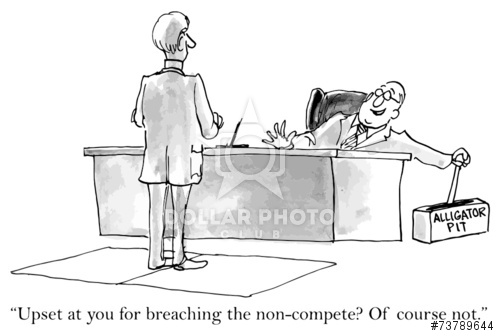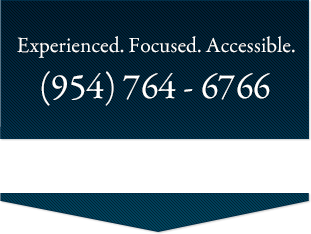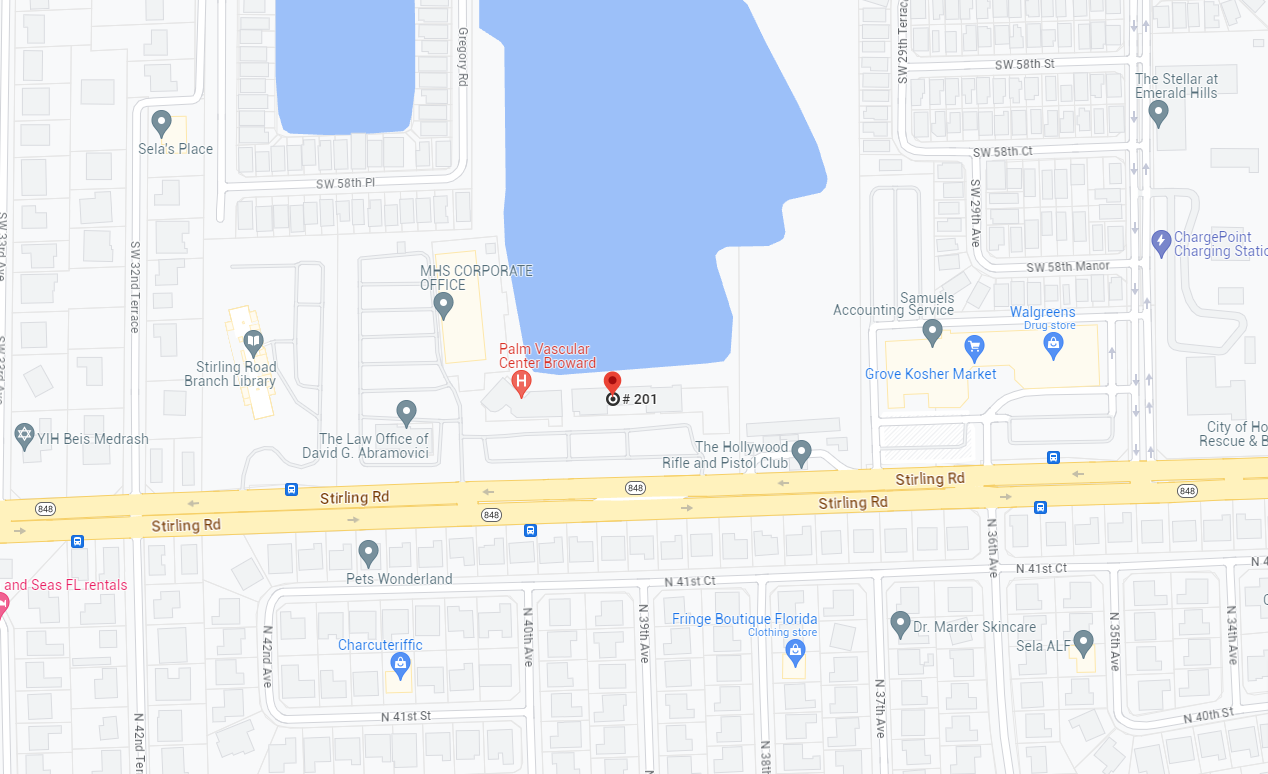Garnishing a Judgment Debtor’s Interest in an Estate
By: Brandon D. Cole
At long last, you emerge victorious in your lawsuit, holding your judgment high. One problem, the judgment debtor does not have sufficient assets to satisfy it. However, you learn that the judgment debtor has an interest in an ongoing estate proceeding and will receive a distribution upon the conclusion of the proceeding. You rush out, have the writ of garnishment issued, and serve it on the personal representative. In the words of Lee Corso, “not so fast my friend.” When it comes to seeking to garnish a beneficiary’s interest in an estate, the Florida Probate Code requires an additional step prior to permitting the garnishment of an estate’s assets.
Over a century ago, the Florida Supreme Court, in Post v. Love, 19 Fla. 634 (1883), held that an executor of an estate could not be required to answer a writ of garnishment by a creditor of an heir. The court’s decision was based on (i) the text of the garnishment statute, which limited the garnishment of intangible personal property to debts due from third-parties, and (ii) the concern that allowing estates to be garnished would cause “great confusion and expense” in their administration. Id. at 642.
In 1967, the legislature amended Section 77.01 of the Florida Statutes to allow the garnishment of “intangible personal property of [the] defendant in the possession or control of a third person.” §77.01, Fla. Stat. As the Fourth District Court of Appeal noted in Murray v. Nationsbank of Florida, N.A., 846 So.2d 548 (Fla. 4th DCA 2003), this change in the garnishment statute now permits a beneficiary’s interest in an estate to be garnished. The Murray court reasoned that, because the right to inherit from an estate is a type of intangible personal property, the expansion of the categories of property that can be garnished under the 1967 amendment to the garnishment statute included a beneficiary’s interest in an estate. Id. at 551. But the revised garnishment statute only allows a beneficiary’s interest to be garnished; what about the additional step mentioned above?
The predecessor to the Florida Probate Code, the Probate Act, prohibited “any levy [] against any property, real or personal, of the estate of a decedent.” Brown v. Sweat, 6 So.2d 538 (Fla. 1942). However, the current statute, Section 733.706, does not contain such a blanket prohibition, but, instead, provides that:
Except upon approval by the court, no execution or other process shall issue on or be levied against property of the estate. An order approving execution or other process to be levied against property of the estate may be entered only in the estate administration proceeding.
733.706, Fla. Stat. Thus, the current statute allows a writ of garnishment to issue against the property of an estate only if the probate court enters an order approving issuance of the writ.
The Murray court discussed two additional points that should be addressed in seeking an order approving the issuance of a garnishment. First, the probate court should make a finding that the garnishment will not interfere in the administration of the estate. Murray, supra, at 552. Because the probate court is not obligated to approve the issuance of a writ of garnishment against the estate, it is the responsibility of the party seeking approval to show that the garnishment will not be intrusive or disruptive to the estate administration. If the garnishment will be disruptive and cause the estate’s expenses to increase unnecessarily, it not only affects the interest of the judgment debtor, but the rights of all of the interested parties to the estate. Second, the probate court must control any payments from the estate’s assets. Id. This is important because Section 733.706 requires not only approval of the issuance of process, but also approval of the execution against the estate’s assets.
Let us summarize the process of garnishing property of an estate. First, a creditor must obtain its judgment. Second, the creditor must file a motion in the probate proceeding requesting the entry of an order (1) permitting a writ of garnishment, against someone to whom the estate is indebted, to be issued against and served on the personal representative of the estate, (2) finding that the garnishment will not interfere with the administration of the estate, and (3) stating that the probate court will control any payments from the estate assets. Third, the creditor must follow the standard statutory procedure for garnishment before the court from which the garnishment issued and serve the garnishment on the personal representative. Finally, the creditor must seek the approval of the probate court to execute against the judgment debtor’s interest.
The creditor should be aware of two relevant issues. First, the execution may not be approved until the personal representative is ready to distribute the estate’s assets and close the estate. Second, if the garnishment is served on the personal representative before a determination can be made of the amount due the judgment debtor, the personal representative may not be able to state in his or her answer whether the estate is indebted to the judgment debtor or list the property of the judgment debtor in the personal representative’s possession or control. The impact of a premature garnishment on a personal representative in Florida has not yet been determined by the appellate courts.
If you are a judgment creditor, and you are seeking to garnish the judgment debtor’s interest in an estate in Broward, Miami-Dade, Palm Beach County, or anywhere in Florida, please contact a Broward County Probate & Estate Administration lawyer by calling (954) 764-6766 or by completing the contact form on this page.
Enforcing Construction Liens: The Importance of Punctuality
“If you’re not early, you’re late.”—Vince Lombardi
While there are many different variations of exactly what the great Vince Lombardi stated regarding punctuality, his message on the importance of punctuality cannot be overstated. Punctuality is important in nearly every aspect of our lives. Punctuality can set the tone for our relationships, both personally and professionally, and could, perhaps, make or break a business deal. Punctuality has been said to be the “soul of business” (Thomas C. Haliburton). However, it is important to remember that the concept of punctuality is not limited to simply arriving at a place at the right time (or early), but, rather, about taking actions at the right time. For this reason, punctuality is, perhaps, most important in the legal realm, because failing to take specific actions at the right time could cause you to forfeit important legal rights.
In Florida, a contractor, subcontractor, or supplier has the legal right to place a lien on a project owner’s property when he or she doesn’t get paid; however, in order to preserve those rights, the contractor, subcontractor, or supplier must take certain actions at the right time. For example, a contractor that has a direct contract with the project owner may be able to simply file a Claim of Lien within 90 days after completing its final work at the project. But a subcontractor or supplier without a direct contract with the project owner must take additional steps, such as providing a Notice to Owner not later than 45 days after beginning work, or first supplying materials, at the project. Similarly, when the project is bonded, the subcontractor or supplier must provide a Notice of Nonpayment to the surety in order to claim rights under the payment bond. Failure to provide any of the notices within the required time periods, or to timely file a Claim of Lien, will cause the contractor, subcontractor, or supplier to forfeit their lien rights and, possibly, their ability to be paid for the work or materials provided to the project.
If you are a contractor, subcontractor, or supplier in Broward, Miami-Dade, or Palm Beach County, and would like to ensure that you are properly preserving your lien rights, then schedule a consultation with a Broward County construction lawyer by calling (954) 764-6766 or by completing the contact form on this page.
“My Word Is My Bond”: Are Oral Contracts Enforceable?
In general, a contract does not have to be in writing to be enforceable. Of course, a written contract is usually best, because it clearly sets out the purpose of the contract and the obligations of each party under the contract. However, in today’s business world, people often make oral agreements believing and intending that both parties to the agreement will honor their obligations. Perhaps one of the parties to the agreement was highly recommended by a friend, and the other party didn’t believe a written contract was necessary. Or perhaps the agreement was so obviously beneficial to both parties, that neither party comprehended a potential breach of the agreement. Regardless of the reasons why the agreement was not put into writing, an oral contract is equally enforceable as a written contract under most circumstances.
In Florida, the requirements of a valid contract, whether oral or written, are always the same: offer, acceptance, consideration and sufficiently specific terms. Nevertheless, a written contract is usually preferable, because it is much easier to prove the existence of a valid written contract. When one seeks to prove a valid oral contract, one generally needs to look at things such as letters and e-mails between the parties, the conduct and actions of the parties – e.g., payments made or services performed, and other aspects of the circumstances, such as the relationship of the parties. Even so, some oral contracts are not enforceable under Florida law except under limited circumstances. Examples of these types of oral contracts include: agreements made for the sale of land; residential leases for a period longer than one year; and contracts that will take more than one year to complete. For these types of contracts, the agreement must always be reduced writing.
If you need assistance with enforcing an oral contract (in Broward, Palm Beach, or Miami-Dade County), please call our law firm in Fort Lauderdale at (954) 764-6766 to schedule a consultation with a Broward County business lawyer.
Florida Non-Compete Agreements: Is A Referral Source A Legitimate Business Interest?
Restrictive covenants in an employment contract, such as non-compete or non-solicitation clauses, are disfavored under Florida law. Generally, Florida is a right-to-work state, and Florida courts have explained that any contract that attempts to restrain or limit a person’s right or ability to work must be strictly construed. However, that does not mean that restrictive covenants limiting or prohibiting post-employment competition are not enforceable. To the contrary, when a restrictive covenant is written in compliance with Florida law, it can be a very powerful tool for an employer to protect its legitimate business interests.
 Section 542.335 of the Florida Statutes provides that restrictive covenants prohibiting or restricting competition must be: (a) reasonable in time, area, and line of business; and (b) designed to protect the employer’s legitimate business interests. While the Statute defines “legitimate business interests” as including (among other things) trade secrets, substantial relationships with specific prospective or existing customers, and specialized training, questions often arise as to whether the interests that the employer is trying to protect are actually “legitimate” under Florida law.
Section 542.335 of the Florida Statutes provides that restrictive covenants prohibiting or restricting competition must be: (a) reasonable in time, area, and line of business; and (b) designed to protect the employer’s legitimate business interests. While the Statute defines “legitimate business interests” as including (among other things) trade secrets, substantial relationships with specific prospective or existing customers, and specialized training, questions often arise as to whether the interests that the employer is trying to protect are actually “legitimate” under Florida law.
When interpreting and applying Section 542.335, one issue that occasionally arises is whether “referral sources” qualify as legitimate business interests entitled to protection in an employee non-competition or non-solicitation agreement. While this issue is not entirely settled in Florida, a recent opinion by the Fourth District Court of Appeal (i.e., the appellate court presiding over Broward County and Palm Beach County) provides some insight.
In Infinity Home Care, LLC v. Amedisys Holding, LLC, 40 Fla. L. Weekly D 1929 (Fla. 4th DCA, Aug. 19, 2015), the Fourth District held that referral sources for home health services are a legitimate business interest entitled to protection under a non-compete and non-solicitation clause in an employment contract. In so holding, the Court observed that the home health care industry depends on referral sources as a substantial source of business, and that the former employee was specifically hired because of her substantial relationships with particular referral sources. Thus, the Court concluded that, with respect to the home health care industry, referral sources are protectable legitimate business interests.
Although the Infinity Home Care, LLC case specifically addressed Section 542.335 within the context of the home health services industry, the Court’s reasoning in that case can be applied to many other industries to determine whether a “referral source” is likely a legitimate business interest that is the proper subject of a non-competition/non-solicitation agreement. For example, where the industry relies on referral sources as a substantial source of its business, or where the employee was specifically hired, in large part, because of his or her connections, “referral sources” are likely a legitimate business interest that may be afforded protection under Section 542.335.
If you need clarification regarding whether a non-compete/non-solicitation clause in a Florida employment contract is enforceable in Broward, Miami-Dade, or Palm Beach County, please call our law firm in Fort Lauderdale at (954) 764-6766 to schedule a consultation with a Broward County business lawyer.
Fla. Stat. § 489.128 Now Allows Payment to Some Unlicensed Contractors
By: E. Scott Golden
Because of the way courts have construed a recent change in Florida law, an unlicensed contractor may, in some circustances, be able to be paid through a court proceeding. Until recently, that was not the case.
Under the old law, if a contractor was required to have a license to perform his services, but did not have a license, he could not recover anything in court if he was not paid. Fla. Stat. §489.128 (which precludes any relief “in law or equity by the unlicensed contractor.”) That has now changed, in certain circumstances.
In the case of MGM Constr. Svcs Corp. v. Travelers Cas. & Sur., 57 So. 3d 884 (Fla. 3d DCA 2011), the Third District Court of Appeal decided that, because of a recent change in the language of Section 489.128, if a contractor does not need to have a state license, but needs to have a county license, and fails to procure the county license, the contractor is not precluded by 489.128 from seeking affirmative relief in court. This is a change from prior law (which continues to control for contractors who are required to have a state license).
We now have four situations when an unlicensed contractor performs services:
1. State license required for the type of work being done: The contract is completely unenforceable in law and equity if the contractor did not have a license. In at least one district (the 1st Distrcit Court of Appeal in North Florida), a person that has paid the unlicensed contractor is entitled to seek disgorgement of the money that has been paid, despite getting to keep the benefit of the contractor’s work.
2. No state license required, but county license required, for the work being done, and county ordinance does not say that a contract by an unlicensed contractor is unenforceable: The contract is not automatically unenforceable (at least in the 3d DCA in the MGM Construction case). There is a series of factors to be weighed, which are listed in MGM in order to determine enforceability.
3. No state license required, but county license required, for the work being done, and county ordinance says that a contract by an unlicensed contract is unenforceable: MGM does not directly address this, but the decision intimates that the contract would not be enforceable
4. No state or county license required: The contract is generally enforceable.
If you need to consult with a Fort Lauderdale construction attorney regarding an issue involving an unlicensed contractor, then please contact our firm at (954) 764-6766 to schedule an appointment.







